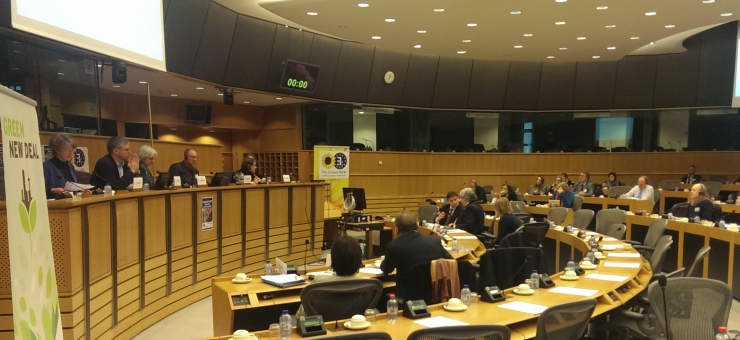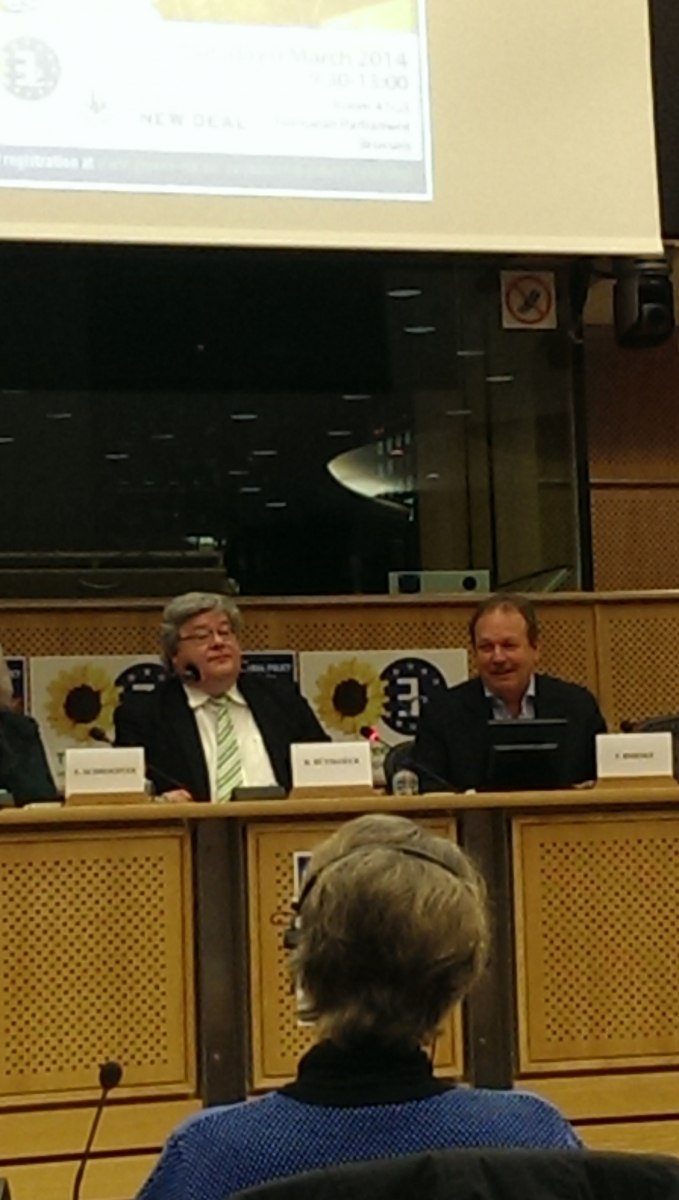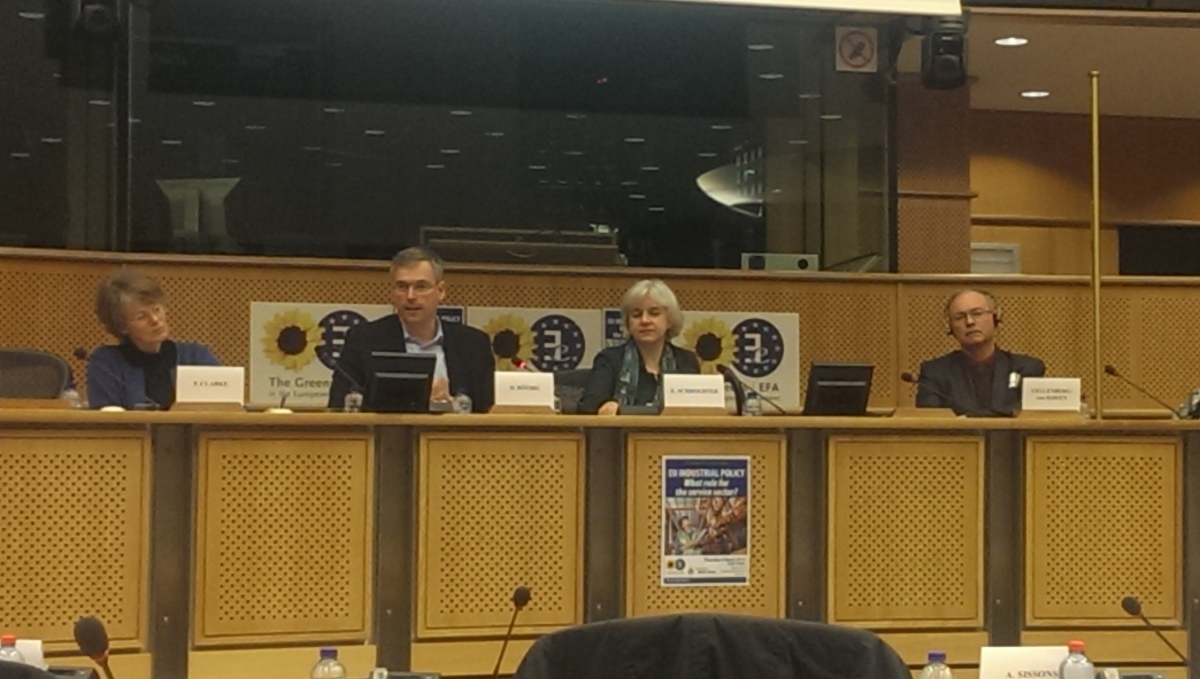News
What Role for Services in EU Industrial Policy?

On 6 March 2014, UNI Europa contributed to a high-level conference on the role of the European services industry in the context of EU industrial policy which took place in the European Parliament in Brussels. Reinhard Bütikofer, MEP and co-president of the European Greens, acted as host of the conference. Next to interventions by UNI Europa President Frank Bsirske and Regional Secretary Oliver Röthig, speakers representing national governments, academic institutions, and social partners provided food for thought and concrete proposals for EU policy-making.
Mr Bütikofer and his political family have produced extensive work on European industrial strategy, advocating a resource-efficient and socially inclusive EU economy. A UNI Europa delegation comprising colleagues from affiliated unions in France, Sweden, and the United Kingdom accompanied the two UNI Europa speakers and contributed actively to the discussions facilitated by Mr Bütikofer and MEP Elisabeth Schroedter
Reinhard Bütikofer opened the conference by stating that EU industrial policy cannot afford to remain limited in scope by focussing almost exclusively on manufacturing sectors. European services providers and their more than 150 million employees are key players in an EU economy that faces numerous economic, social, and environmental problems and transformations. This requires a broadening of the European services governance toolbox, which, to date, mainly consists of highly controversial liberalisation strategies. Social partners were acknowledged as key stakeholders which need to have an effective say in EU economic development policies by Mr Bütikofer.

In his keynote speech, UNI Europa President Frank Bsirske provided extensive evidence of services research that awaits being taken up in EU policy-making. Lack of ready-to-use knowledge can therefore not be used as a pretext by a European Commission that currently fails to produce a meaningful strategy for services in Europe. Investments in infrastructure and effective measures against social and wage dumping are needed to enhance economic and social developments in the European services industry and to harness its full potential for growth and the creation of quality employment.

Oliver Röthig contributed to the conference as panellist in a discussion on the effects of services liberalisation and international trade agreements. Pointing out that EU liberalisation measures have largely failed to enhance the quality and availability of services in Europe, new approaches are needed, not least to reverse the negative effects on employment and job quality wrought by these measures. Oliver Röthig put forward the demand of a comprehensive EU services policy that serves to create quality- and innovation-driven competition in European services sectors. Such a strategy, for which the UNI Europa Services Manifesto sets signposts, must be drawn up and implemented as a matter of urgency to replace the current low-road strategy. Oliver demanded in his intervention that European election candidates must make their commitment to this project visible by signing up the UNI Europa Manifesto Pledge: A strong European Union needs a strong services industry – and quality jobs for quality services are a precondition for this to become reality.

